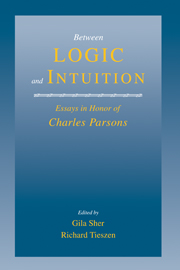Book contents
Must We Believe in Set Theory?
Published online by Cambridge University Press: 02 December 2009
Summary
According to set theory, by which I mean, as usual, Zermelo-Fraenkel set theory with the axioms of choice and foundation (ZFC), there is a cardinal λ that is equal to ℵλ. Call the least such cardinal κ. The cardinal κ is the limit of that is, the least ordinal greater than all f(i), where f(0) = ℵ0 and f(i + 1) = ℵf(i) for all natural numbers i.
Is there such a cardinal? I assume that cardinals are ordinals and ordinals are von Neumann ordinals. Thus if κ exists, there are at least as many as κ sets. Are there so many sets?
Much very important and interesting work in set theory these days is concerned with cardinals far, far greater than κ, cardinals whose existence cannot be proved in set theory, and with the consequences of assuming that such large cardinals do exist, particularly those concerning objects at comparatively low levels of the set-theoretic universe. Since κ is the limit of an ω-sequence of cardinals smaller than κ, it is not (even) an inaccessible cardinal, the smallest common sort of cardinal whose existence cannot be proved in set theory, let alone measurable, huge, ineffable, or supercompact.
No, κ is quite small, indeed teensy, by the standards of those who study large cardinals.
But it's a pretty big number, by the lights of those with no previous exposure to set theory, so big, it seems to me, that it calls into question the truth of any theory, one of whose assertions is the claim that there are at least κ objects.
- Type
- Chapter
- Information
- Between Logic and IntuitionEssays in Honor of Charles Parsons, pp. 257 - 268Publisher: Cambridge University PressPrint publication year: 2000
- 9
- Cited by



